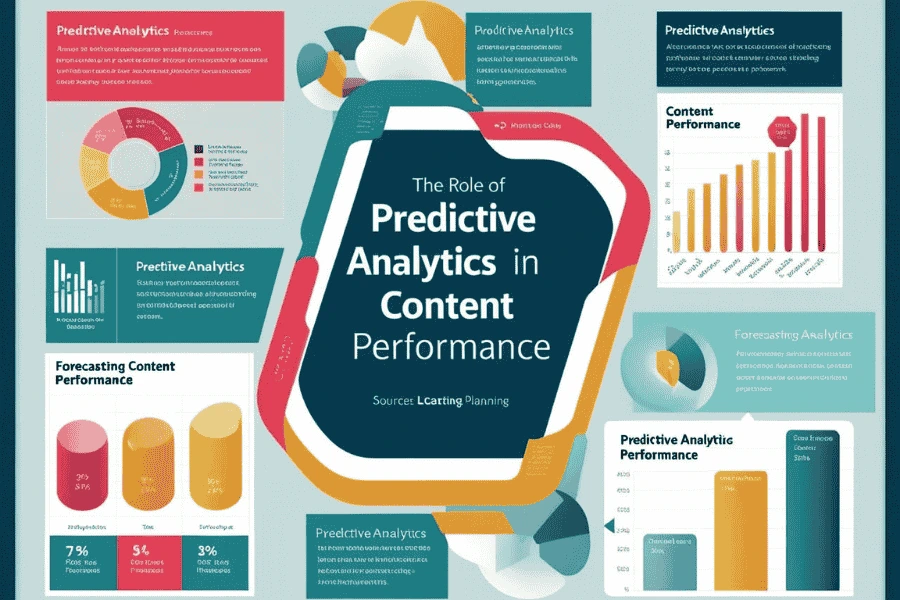Forecasting Content Performance: The Role of Predictive Analytics in Planning
Introduction: Why Predict Future Content Performance?
In the ever-evolving digital landscape, success in content marketing is no longer just about producing quality content—it's about anticipating what will work before it goes live. Predictive analytics enables marketers to forecast content performance using historical data, trends, and machine learning models. By forecasting engagement and conversions, teams can allocate resources more effectively, reduce trial and error, and build data-backed strategies with greater confidence.

What is Predictive Analytics in Content Marketing?
Predictive analytics refers to the use of statistical techniques, machine learning, and data mining to analyze current and historical data and make predictions about future outcomes. In the context of content marketing, it involves using user interaction metrics—like time on page, shares, conversions, and bounce rates—to predict how future content will perform under similar conditions.
Key Data Sources Used in Forecasting
Historical Content Performance Analyzing data from past campaigns (e.g., traffic, click-through rates, engagement) helps identify patterns and content formats that consistently deliver results. Audience Behavior Data Metrics like session duration, scroll depth, and user journey paths reveal what types of content your audience prefers. SEO and Keyword Trends Search engine behavior, trending keywords, and seasonal demand insights (from tools like Google Trends) help forecast topic relevance and organic reach. Social Media Insights Engagement metrics from social platforms highlight which content formats and tones resonate best with your target demographic.
Common Predictive Techniques in Content Strategy
Regression Analysis Used to determine how content variables (length, media type, keyword density) influence performance outcomes like shares or conversions. Time Series Forecasting Helps predict content performance based on recurring patterns, such as increased demand during specific months or campaign cycles. Machine Learning Models Algorithms can identify subtle patterns across massive datasets to predict how similar future content will perform—offering real-time recommendations.
Benefits of Using Predictive Analytics in Content Planning
Increased ROI: Focus resources on content that is more likely to perform well. Better Editorial Calendars: Plan publishing schedules based on anticipated performance peaks. Smarter Personalization: Predict what topics or formats different audience segments will respond to. Reduced Risk: Avoid investing in content types that have historically underperformed.
Real-World Applications and Examples
Companies like Netflix and BuzzFeed rely on predictive analytics to recommend and create content based on viewer behavior and trending data. Similarly, marketers can use predictive models to identify winning blog topics, optimal publishing times, or even content gaps that competitors haven't filled.
Challenges and Considerations
While predictive analytics offers great potential, it comes with limitations: Data Quality Matters: Inaccurate or incomplete data can skew forecasts. Rapidly Changing Trends: Virality and public sentiment can shift unpredictably. Over Reliance on Automation: Human intuition and creativity are still essential in content ideation and storytelling.
Conclusion
Predictive analytics empowers content teams to move from reactive to proactive planning. By leveraging historical data and machine learning, marketers can craft strategies that are more targeted, efficient, and impactful. In a landscape saturated with content, the ability to forecast performance is not just an advantage—it's becoming a necessity.
Active Events
Navigating the World of SERP Features: Tips, Tricks, and Strategies
Date: Aug 07, 2025 | 7:00 PM(IST)
7:00 PM(IST) - 8:10 PM(IST)
2811 people have registered
Best Tips to Create a Job-Ready Data Science Portfolio
Date: Aug 06, 2025 | 7:00 PM(IST)
7:00 PM(IST) - 8:10 PM(IST)
2811 people have registered
Bootcamps
Digital Marketing Bootcamp
- Duration:4 Months
- Start Date:Aug 09, 2025
Data Science Bootcamp
- Duration:4 Months
- Start Date:Aug 09, 2025
